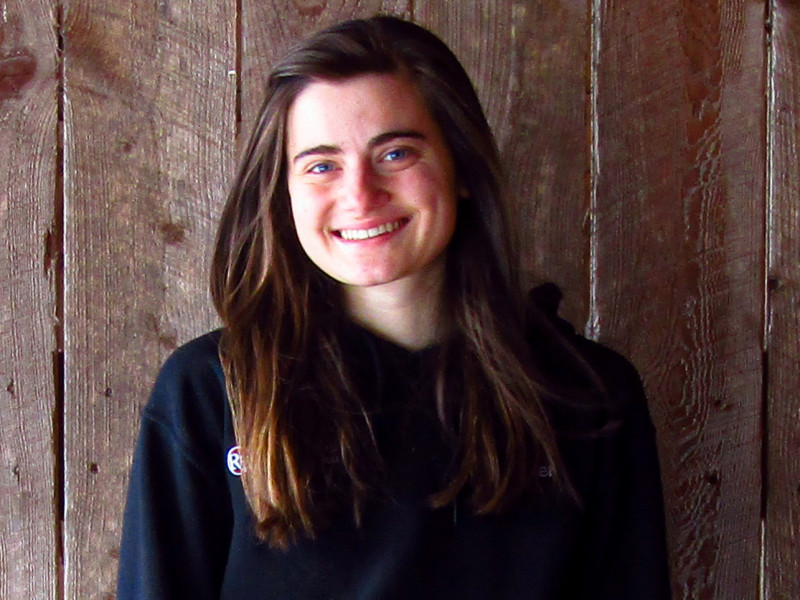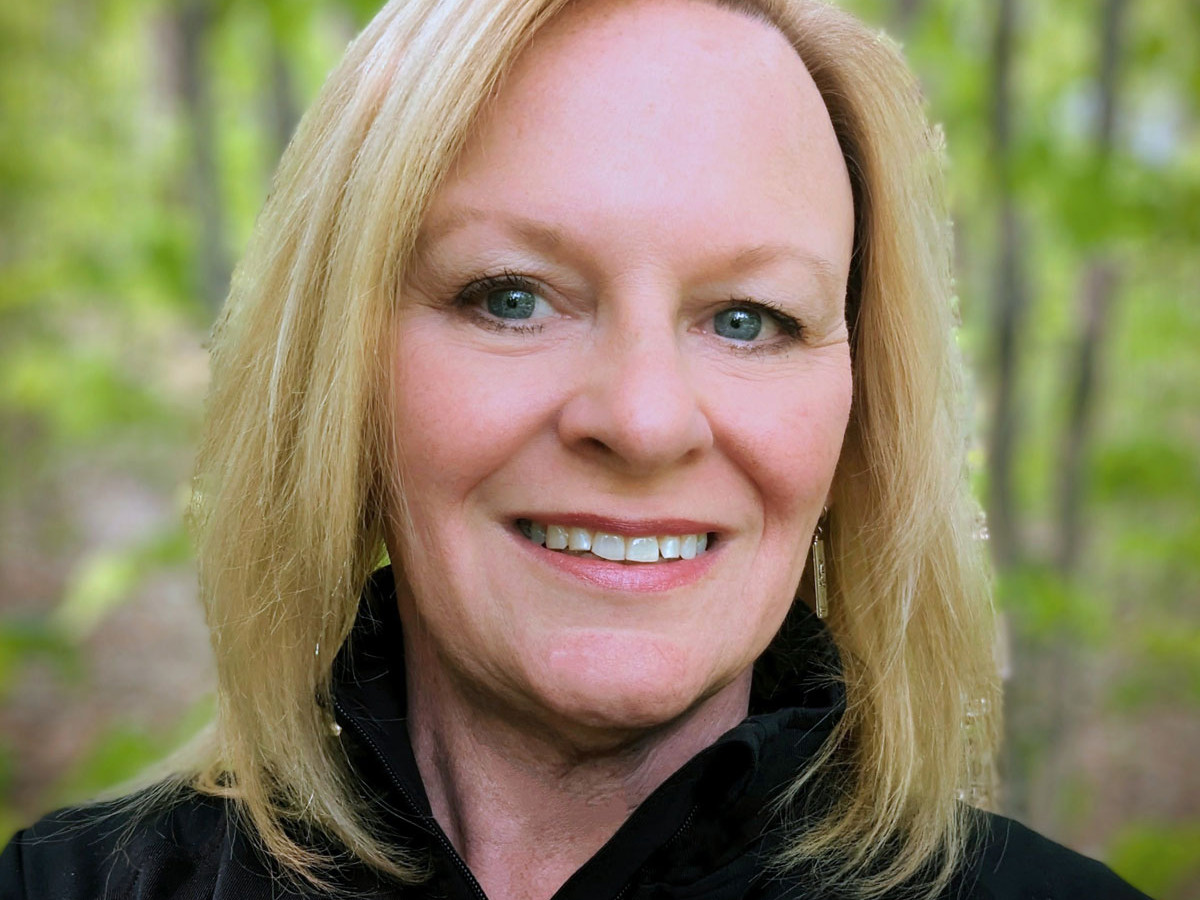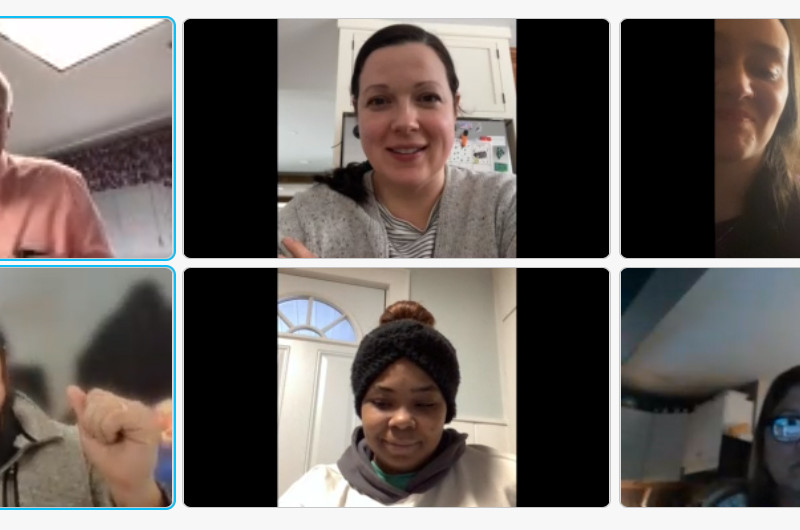
Like all early childhood professionals, Sharron Harrington is busy. But the new executive director of the Vermont Association for the Education of Young Children (VTAEYC) graciously gave me an hour of her undivided attention last week. When I logged into our Zoom meeting, I caught a glimpse of her profile photo, in which she’s snuggling her newest grandchild. She looks smitten.
This is a person who has devoted her life to nurturing young people: her own children; the children she taught as an early childhood educator; and the children she has advocated for as a VTAEYC board member. These days, that list includes her grandchildren, as well as the many children she stands to impact through VTAEYC, which strives to strengthen the entire early childhood education system primarily by supporting its workforce. Her passion goes back even further: Sharron says that as a teenager, she wanted to become a nursery school teacher. “I just loved children.”
Sharron knew that a college education would help her after high school, but “I wasn’t from a family that had college experience, and even though I was in college prep classes thinking that’s what I needed to do, I didn’t really have any direction on how to pursue higher education.” She joined the workforce, went to trade school, and started her own photography business, which she ran for close to 20 years.
Sharron eventually found her way to the field of early childhood education through an AmeriCorps position promoting literacy for a child support services agency. From there, she worked as a classroom teacher, resource development specialist, and Let’s Grow Kids program manager, among other roles. For close to ten years, she has served on several professional committees, all ultimately focused on advocating for accessible, high-quality care for Vermont children and families. This spring, she took the top post at VTAEYC.
One of the tools Sharron used to advance her career was CCV’s Assessment of Prior Learning (APL) class. It’s an intensive, single-semester opportunity for students to translate their skills and knowledge into college credit, and it’s part of a suite of offerings housed under the Prior Learning Assessment (PLA) program, all of which offer ‘Credit For What You Know.’ Many professionals, especially early childhood educators, possess a wealth of experience but lack formal credentials that could help them climb the career ladder. APL involves creating a portfolio that describes prior learning in a variety of academic areas and helps students save time and money on a certificate or degree. On average, students walk away from the class with 30 credits; Sharron earned an impressive 101.
“It was pretty incredible to really self-reflect on what you think you have learned as an adult, and the value of that.”
Sharron Harrington
“I think that it was pretty incredible to really self-reflect on what you think you have learned as an adult, and the value of that,” she says. But that doesn’t mean it was easy. “It was like a part-time job…One of the things that I share with others who are considering it [is that] it’s a lot of writing. I had an excellent instructor who walked us through the process in manageable pieces. The community that was engaged in the course helped move everyone along and helped focus and be supportive. It was quite an accomplishment in the end.”
“I think that it was sort of a springboard,” Sharron says of the APL class, “to ‘what does this mean, and what is next, and where do I want to go?’” Two years after completing the class, she enrolled in an online bachelor’s degree program through Bellevue University, which she pursued while her own children were in college. “Completing that sort of felt like it opened doors to me that I didn’t have before, because in many cases the positions that you see require a degree…if I wanted to have any career advancement, I knew that I needed to have at least a bachelor’s degree.”
As the child care tide slowly begins to change in Vermont, Sharron says, PLA could be a key piece of the workforce development puzzle. “I think that a lot of people who have been in the field for a long time who have met the requirements, and the licensing requirements, but they are doing so much more and they have so much more that they can show evidence of, and [PLA] is a way that that can happen,” Sharron says.
And this fall, there are numerous ways for early childhood educators to save on tuition at CCV. The ECE Portfolio Scholarships support 10 students who are enrolled in a prior learning assessment class; the recently expanded Curtis Fund Commitment, offered in partnership with VTAEYC, covers the cost of CCV’s childcare certificate, as well as providing stipends of up to $12,000 a year. Students with a family income of $75,000 or less can attend CCV tuition-free through VSAC’s 802 Opportunity Grant, and Vermonters enrolled in certain high-demand programs, including early childhood education, can receive a 50% tuition discount.
Sharron Harrington says she never could have imagined being in the role she’s in today. But her personal journey has given her a firsthand appreciation for the many opportunities students have to gain valuable credentials and move forward in their careers. “The vision for Vermont’s early childhood education system includes clear career pathways needed for a well prepared and well compensated early childhood education workforce, and most importantly equitable learning opportunities for all children,” she wrote in an email after our interview. “I feel privileged to be a part of this each and every day.”



